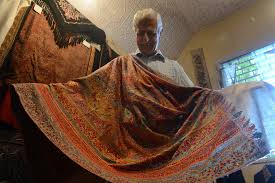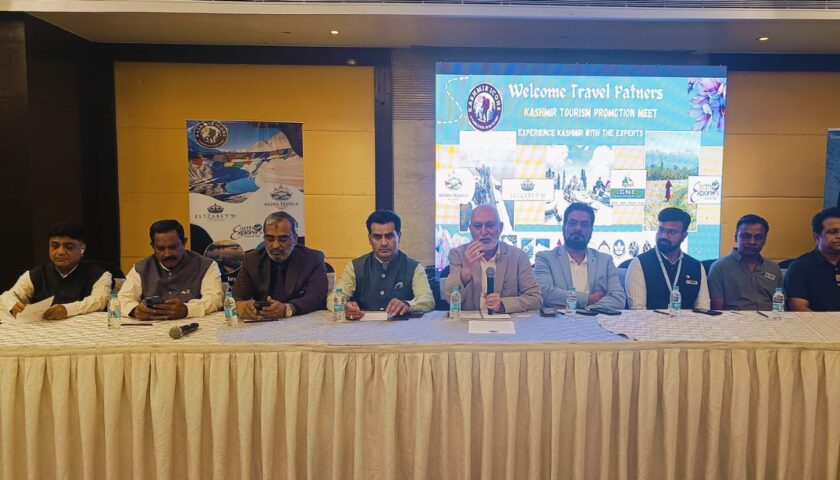As CM calls for GI Certification
Despite Chief Minister Mufti Sayeed recently expressing concern over local markets swarming with fakes in the name of Kashmir Handicraft, famous handmade Pashmina shawls in Kashmir are falling prey to machine made fakes.
 As it becomes difficult for a customer, especially tourists, to distinguish between an original Kashmiri Pashmina shawl and a ‘fake’ one, the duplicate shawls, manufactured mainly in Punjab, are openly tagged and sold as authentic Kashmiri shawls in many showrooms within and outside the valley.
As it becomes difficult for a customer, especially tourists, to distinguish between an original Kashmiri Pashmina shawl and a ‘fake’ one, the duplicate shawls, manufactured mainly in Punjab, are openly tagged and sold as authentic Kashmiri shawls in many showrooms within and outside the valley.
The Pashmina shawl weavers, who have been associated with the Pashmina industry since generations, believe that under the presence of such illegal competition, this traditional art may not stand for a long time. Along with this, the reputation of the entire tourism industry is also put at risk as tourists are duped by selling them ‘fake’ Pashmina.
Tariq Ahmad, a Pashmina Shawl weaver from old city is of the opinion that the authorities concerned should take responsibility to stop this fabrication and identify those who are on the helm of destroying this golden industry.
“Government should check the sale of machine made shawls, which are being sold in the name of Kashmiri handmade shawls. We should be provided with all the relevant financial and marketing support,” said Abdul Khaliq, Chairman of Weavers Union Srinagar.
Majority of the people living in Old City (Shehr-e-Khaas) Srinagar are directly or indirectly connected with weaving, spinning and manufacturing of Pashmina shawls. These people allege that most of these ‘fake’ shawls are manufactured in Amritsar, Punjab and then brought into the valley markets to be sold as original Kashmiri shawls.
While speaking to Younis Farooq, Manager Craft Development Institute (CDI), he said “For the protection and glorification of this golden art, we have introduced many schemes and have taken many steps. The most recent being the Geographical Indication (GI) by which every handmade Kashmiri Shawl will be imprinted by a GI label, after it is tested for originality of fabric, fineness of thread, spinning method and weaving process”.
The move is expected to restore the glory of Kashmiri Pashmina shawls and lead to the economic prosperity of the artisans.
“As the details of the manufacturer and quality of the shawl will also be indicated on the label, it will significantly dissuade the sale of fake shawls”, added Farooq.
The artisans believe that the authorities need to inform buyers, especially tourists about the GI identification. “They should advertise this move frequently using different media, the need is to have an awareness about how to differentiate between the real Pashmina and the fake one”, said Ramzaan Shah, a weaver in old city.
It is relevant to mention here that CM Mufti Sayeed while interacting with a delegation of Kashmir Chamber of Commerce & Industry (KCC&I) on September 2 had specifically talked about Geographical Indication (GI) registration of famed hand-made items of Kashmir.
“Our products will continue to capture foreign markets if we sell genuine items with certified price tags,” said CM earlier this month.




